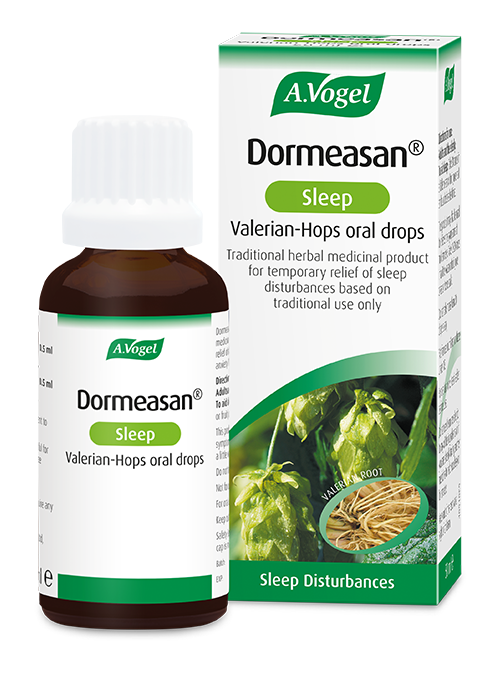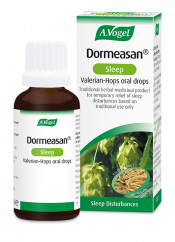Why is sleep so important to memory?

It’s been estimated that humans will spend an incredible 1/3 of their lives sleeping, but this figure is hardly surprising considering how much we need sleep to support our mental and physical well-being.
Given how important sleep is it’s surprising how little we know about it but one area that does seem to be garnering more attention recently is the relationship between sleep and your memories.
It’s believed that sleep is essential for consolidating your memories. This simply means that while you sleep, your brain decides which memories should be committed to long-term memories and which short-term memories should be erased so you can formulate new memories.1 For example, you can definitely remember the name of your country’s capital city but the chances are you probably can’t remember the colour of the socks you wore last week.
It’s even believed that certain stages of sleep play different roles in consolidating different types of memories!
1https://www.tuck.com/memory-and-sleep/
What happens to your memories during the different stages of sleep?

When it comes to consolidating short-term memories to long-term memories, deep slow wave sleep during stage 3 tends to take centre stage, at least when it comes to parts of your memory such as declarative memory, the memory of fact-based information and events.
When you’re taking an exam, for instance, you will need to consciously recall information and facts. These types of memories are encoded by the hippocampus, peririhinal cortex and entorhinal cortex and stored as long-term memories in the temporal cortex.2 It’s believed that this process takes place during deep, NREM (Non-Rapid Eye Movement) sleep and certain studies do seem to back up this theory.
In 2014, a study published in the Journal Science documented experiments conducted on mice, during which some mice were deprived of sleep and others were permitted to rest. The results showed that the sleeping mice were able to form more connections between neurons, proving that they were learning more than their sleep-deprived counterparts.
The scientists also disrupted the mice’s sleep patterns during different stages of sleep, and found that deep, slow wave sleep was essential for memory formation.3
But what about REM sleep?
While declarative memories are generally consolidated during stages 3 & 4 of sleep, it’s believed that REM sleep plays another vital role when it comes to procedural memory. Procedural memory is extremely important for how you do things and instinctive actions – riding a bike is a procedural memory, for example.4
When you’re in REM (Rapid Eye Movement) sleep, it’s thought that this is when you consolidate procedural memories and reconsolidate other recent memories. Some sleep scientists even arguing that REM sleep is essential for getting rid of unnecessary memories to make way for new memories to be processed. Or, as Francis Crick elegantly but it, sometimes ‘we dream in order to forget.’
2ttp://www.human-memory.net/types_declarative.html
3http://www.bbc.co.uk/news/health-27695144
4https://www.howsleepworks.com/why_memory.html
Can a lack of sleep affect your memory?

Okay, so I’ve covered a little bit about the relationship between sleep and memory but what happens in cases of sleep deprivation?
Well sleep loss would appear to have a negative impact on the hippocampus, a part of your brain responsible for encoding declarative memories.5
This can affect how certain memories are consolidated, making it difficult for you to learn or remember certain pieces of information or even to retain old memories. One study conducted by the University of California even discovered that memories may be getting trapped in the hippocampus without getting consolidated to the temporal cortex.6
In addition to affecting the hippocampus, it was also found that sleep deprivation could result in low levels of a molecule known as BDNF (Brain Derived Neurotrophic Factor) which can help to moderate synaptic connections in the brain7 and plays an important role when it comes to slow wave sleep.
One group particularly at risk is the elderly, as they are at greater risk of developing sleep problems. A key reason for this is that as we age, sometimes our production of melatonin, the sleep hormone, can start to decrease and our body clocks can start to change.8 In fact, one study found that the quality of deep sleep in adults over the age of 70 was 75% lower than young adults in their 20s, which had a noticeable impact on their memory the following day.9
Getting plenty of good quality sleep is essential when it comes to keeping your memory in tip-top condition so what can you do to help?
5https://www.sciencedaily.com/releases/2016/08/160823125219.htm
6https://www.nature.com/articles/nn.3324
7https://www.theguardian.com/science/2016/aug/23/sleep-resets-brain-connections-crucial-for-memory-and-learning-study-reveals
8https://www.medicalnewstoday.com/releases/103984.php
9https://www.medicalnewstoday.com/articles/255511.php
Sleeping for your memory

Keep the late nights to a minimum
Whether you’re studying for an exam or stressing over work, those late nights will take a toll and while some of you might think that you can just make up for lost sleep the next day, lying in isn’t always the solution, as I explore in my blog ‘Are your weekend lie-ins really helping you to catch up on sleep.’
Instead, what you should be aiming for is a regular and consistent sleep routine. Try to go to bed and get up each day at the same time and make sure your bedroom is just for sleeping. Rather than taking work to bed with you, try to create a relaxing sleep environment and ban all devices from your bedroom – and yes this includes your tablet and iPhone!
Watch what you drink
Most of us have a bad habit of reaching for the coffee pot when we’re feeling tired and foggy-headed but caffeine definitely won’t help your situation. Not only will it linger in your system, potentially keeping you awake longer at night (it’s thought that caffeine takes about 5-6 hours to wear off, although women on birth control require about twice this amount of time!10 ), caffeine can also leave you dehydrated, especially if you use it as a substitute for water.
Alcohol is another culprit to watch out for, as are fizzy drinks such as coca cola or lemonade. Instead, try to stick to plain water to keep yourself hydrated!
Fuel your brain with food
The concept of ‘brain food’ is hardly new which is why I’m proposing that you try to support this vital organ with your diet instead of indulging your cravings and giving into the temptation to binge on sugary, carbohydrate-rich foods.
Switch refined white breads and rice for wholegrain alternatives – not only will these keep you energised, they’re also a low GI option that won’t trigger any insulin spikes, instead providing you with a slow, steady release of glucose.
If you aren’t vegan or vegetarian, you could also try to increase your intake of omega-rich oily fish, such as salmon or mackerel, or instead opt for plant-based sources such as chia seeds or walnuts. Superfruits such as blueberries and blackcurrants are also rich in antioxidants, helping to protect your brain from oxidative stress!
Try a gentle herbal remedy
Finally, if you’re still finding it tricky to nod off at night, you could try a gentle herbal remedy such as our Dormeasan. Created using extracts of organically harvested Valerian and Hops, this tincture has a potent taste but don’t worry, this flavour simply means that Dormeasan hasn’t lost any of its volatile oils!
Gradually helping to promote a deep, natural sleep pattern without any drowsy side-effects the following day, Dormeasan is suitable for adults over the age of 18 and can be taken once or twice a day depending on your needs. I would personally recommend taking 20 drops half an hour before bedtime to ensure you drift off into a natural sleep.
A.Vogel Dormeasan Sleep Valerian-Hops Oral Drops | Sleeping Aid | Extracts of Fresh Valerian Root
£5.49 (15ml) In Stock Get it tomorrow, 5th July.
10https://lifehacker.com/5585217/what-caffeine-actually-does-to-your-brain









